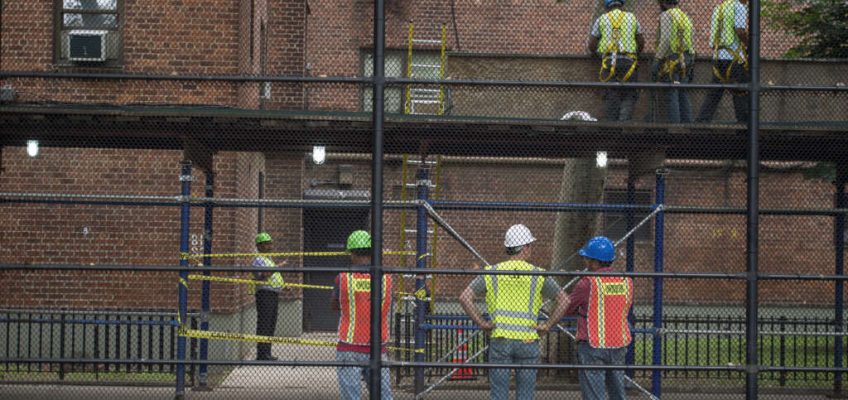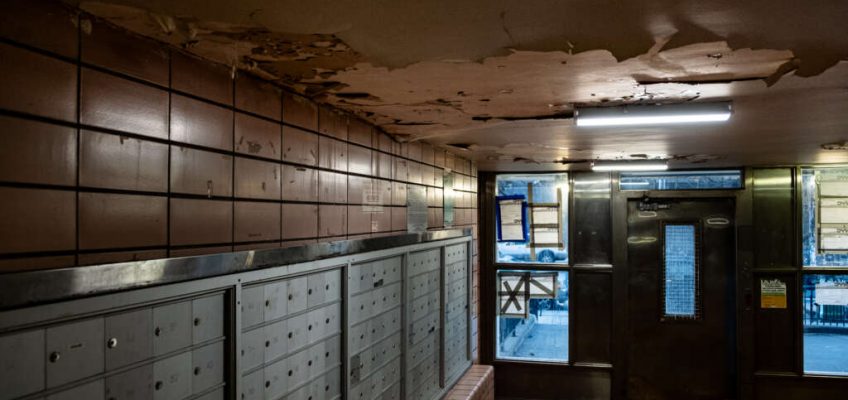Entre julio y agosto los trabajadores inmigrantes mexicanos que viven en los Estados Unidos reportaron mayor desempleo y menores ingresos laborales, frente al 2024, cuando alcanzaron el “nivel máximo” de empleo, según un informe del Centro de Estudios Monetarios Latinoamericanos (CEMLA).
“En el bimestre julio-agosto de 2025, el principal sector empleador fue la construcción con 1.598.939 personas y el 22.5 por ciento del total, seguido por los sectores de servicios profesionales y de administración”, destaca el informe. (Demetrius Freeman/Oficina de Fotografía del Alcalde)
Entre julio y agosto los trabajadores inmigrantes mexicanos que viven en los Estados Unidos reportaron mayor desempleo e ingresos laborales generales, frente al 2024.
Según un nuevo informe del Centro de Estudios Monetarios Latinoamericanos (CEMLA), el empleo entre los migrantes mexicanos se debilitó significativamente en este periodo, y lo que preocupa es que esta tendencia podría tener efectos en cadena en millones de hogares mexicanos que dependen de las remesas.
Usando datos de la Oficina del Censo de EE. UU., el CEMLA estimó que entre julio y agosto de 2025 había 7.2 millones de trabajadores inmigrantes mexicanos, lo que representa un descenso del 6 por ciento respecto al año pasado.
Ha habido una pérdida de casi 462.000 trabajos, y más hombres que mujeres los han perdido.
La caída se produce después de que en 2024 se alcanzara el “nivel máximo” de empleo para los inmigrantes mexicanos, dice el informe.
Los sectores más afectados son aquellos en los que los inmigrantes mexicanos suelen estar más representados. Por ejemplo, los sectores de la alimentación, el hospedaje y la recreación, con una caída del 23.6 por ciento, y los servicios en hogares, con un 21.2 por ciento.
“En el bimestre julio-agosto de 2025, el principal sector empleador fue la construcción con 1.598.939 personas y el 22.5 por ciento del total, seguido por los sectores de servicios profesionales y de administración”, destaca el informe.
La caída del empleo también ha erosionado los salarios, dice el informe.
En junio de 2025, los mexicanos ganaban una media de $51.128 dólares al año, pero en agosto bajó a $50.575 dólares.
Los analistas del CEMLA dicen que la baja en el empleo se debe más a la disminución de la demanda laboral que a las deportaciones o al absentismo por miedo a las leyes de inmigración. El informe advierte que, si el mercado laboral estadounidense no se estabiliza, las remesas podrían debilitarse.
Así que para hablar sobre el informe, invitamos a uno de sus autores, Jesús Cervantes, director de estadísticas económicas y coordinador del foro de remesas de América Latina y el Caribe del CEMLA.
Más detalles en nuestra conversación a continuación.
Ciudad Sin Límites, el proyecto en español de City Limits, y El Diario de Nueva York se han unido para crear el pódcast “El Diario Sin Límites” para hablar sobre latinos y política. Para no perderse ningún episodio de nuestro pódcast “El Diario Sin Límites” síguenos en Spotify, Soundcloud, Apple Pódcast y Stitcher. Todos los episodios están allí. ¡Suscríbete!
The post PODCAST: ¿Cómo afectan la caída del empleo y los salarios a los trabajadores inmigrantes mexicanos en EE. UU.? appeared first on City Limits.




